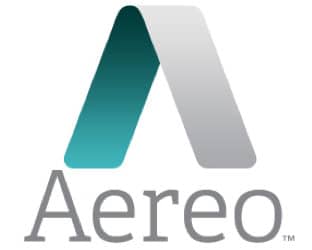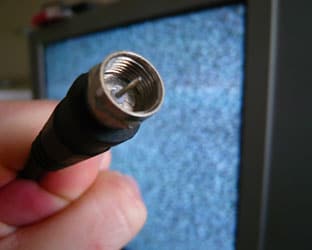 Barry Diller’s local TV subscription streaming service has decided to fire the latest volley at CBS in its ongoing battle with broadcasters. Aereo is responding to the threats of being sued in markets it plans to launch in—specifically responding to CBS EVP/Communications Dana McClintock’s Twitter post on 4/23, re Aereo’s Boston launch: “And we will be there to sue them…Stealing our signal will be found to be illegal in Boston, just as it will be everywhere else…Then again, if Aereo’s business is as successful in Boston as it’s been in NY, it has its own problems to deal with.”
Barry Diller’s local TV subscription streaming service has decided to fire the latest volley at CBS in its ongoing battle with broadcasters. Aereo is responding to the threats of being sued in markets it plans to launch in—specifically responding to CBS EVP/Communications Dana McClintock’s Twitter post on 4/23, re Aereo’s Boston launch: “And we will be there to sue them…Stealing our signal will be found to be illegal in Boston, just as it will be everywhere else…Then again, if Aereo’s business is as successful in Boston as it’s been in NY, it has its own problems to deal with.”
Aereo’s complaint in New York federal court seeks a declaratory judgment that its technology does not infringe upon the broadcaster’s copyrights. Aereo wants a nationwide permanent injunction against CBS and its licensing entities.
“The fact that CBS did not prevail in their efforts to enjoin Aereo in their existing federal lawsuit does not entitle them to a do-over in another jurisdiction,” said Aereo in a statement about the new lawsuit.
A CBS spokesperson told The Hollywood Reporter, “These public relations and legal maneuvers do not change the fundamentally illegal nature of Aereo’s supposed business…The issue of unauthorized streaming of copyrighted television programming is now being contested in the 2nd Circuit and the 9th Circuit, and wherever Aereo attempts to operate there will be vigorous challenges to its Illegal business model.”
On 4/1, The Second Circuit Court of Appeals declined to issue an injunction against the service in a legal battle with broadcasters, networks and film studios who say Aereo is the same as a cable network, so it falls under the 1976 Copyright Act which bans unlicensed communications with the public by means of any device or process.
The three-judge panel ruled that by providing individual streams to consumers Aereo was similar to a consumer streaming a TV show from a Slingbox in one room to a TV set in another room. The judges said Aereo has one TV antenna and one recording device for each subscriber, so it is not the same as a cable system.
The broadcasters have asked the Second Circuit to rehear the appeal before a full panel of judges. Meanwhile, the case also continues in the discovery stage at a lower federal court. What happens outside of the 2nd Circuit jurisdiction (New York, Vermont and Connecticut) is uncertain.
Another wildcard in the overall game: Aereo copycat company Aereokiller had a setback in the 9th Circuit in California last December, so expanding into California, Oregon and Washington might be ill advised for Aereo there. The federal judge in the 9th Circuit ordered Aereokiller to shut down its service–in part because it was ruled that broadcasters were likely to win on their claims of copyright infringement based on Ninth Circuit precedent.
The judge ruled, however, that his decision was applicable only in Ninth Circuit territory–which covers much of the West Coast–because it conflicted with the earlier New York decision which covers the Second Circuit. The Aereokiller decision could affect Aereo’s expansion.
Meanwhile, the broadcast networks (so far Fox and Univision) are threatening to go cable-only if Aereo ultimately wins—and that may ultimately include many of the multicast networks Aereo is carrying.
See The Hollywood Reporter story here.
RBR-TVBR observation: Legally speaking, this is becoming a very tangled mess and will test the jurisdictions of multiple courts. The end result will likely be the Supreme Court, as whomever loses on either side will just appeal on up the ladder. In this latest suit we have to wonder if a New York judge will try and to stop the broadcasters from seeking action in other jurisdictions. If so, CBS will at least try to get the case transferred. Again, Congress may step in at some point as well and create another layer of conflicting authority in this ongoing melee.





